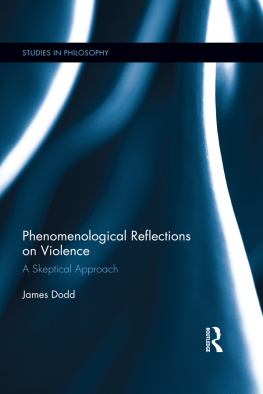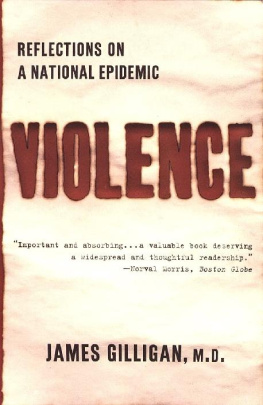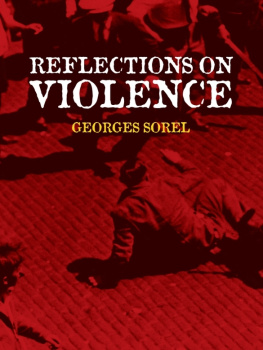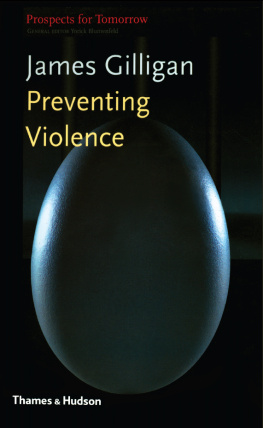First published 2017
by Routledge
711 Third Avenue, New York, NY 10017
and by Routledge
2 Park Square, Milton Park, Abingdon, Oxon OX14 4RN
Routledge is an imprint of the Taylor & Francis Group, an informa business
2017 Taylor & Francis
The right of James Dodd to be identified as author of this work has been asserted by him in accordance with sections 77 and 78 of the Copyright, Designs and Patents Act 1988.
All rights reserved. No part of this book may be reprinted or reproduced or utilised in any form or by any electronic, mechanical, or other means, now known or hereafter invented, including photocopying and recording, or in any information storage or retrieval system, without permission in writing from the publishers.
Trademark notice: Product or corporate names may be trademarks or registered trademarks, and are used only for identification and explanation without intent to infringe.
Library of Congress Cataloging-in-Publication Data
Names: Dodd, James, 1968author.
Title: Phenomenological reflections on violence : a skeptical approach
/ By James Dodd.
Description: 1 [edition]. | New York : Routledge, 2017. | Series:
Studies in philosophy ; 52 | Includes bibliographical references
and index.
Identifiers: LCCN 2017000539 | ISBN 9780415791892
(hardback : alk. paper)
Subjects: LCSH: Violence. | Phenomenology. | Skepticism.
Classification: LCC B105.V5 D625 2017 | DDC 179.7dc23
LC record available at https://lccn.loc.gov/2017000539
ISBN: 978-0-415-79189-2 (hbk)
ISBN: 978-1-315-21217-3 (ebk)
Typeset in Sabon
by Apex CoVantage, LLC

Taken together, the Introduction and further six essays collected here represent an attempt to expand and deepen the reflection on violence pursued in a previous book published under the title Violence and Phenomenology . The basic conclusion of that work was that violencetaken for itself, purely on its own termsis inherently problematic with respect to the conditions for its meaning, or sense. This does not mean that violence is always meaningless or senseless. On the contrary, violence consistently finds some articulation or other that integrates it into an order of understanding, even if at the same time it is also often accompanied by an experience of its utter senselessness. The point of Violence and Phenomenology was instead to show how, from a philosophical perspective, any meaning that we may appeal to in order to understand violence is inherently unstable, resulting in a tendency to waver between radically antagonistic expectations of the sense or senselessness of violence. Another way to express this is that violence is problematically unsaturated with respect to its meaning: it either appears to be radically dependent upon external sources to render it comprehensible, or it appears to itself form the basis for a radical decision with regard to the question of sense. Accordingly, the reflections on violence in Violence and Phenomenology were organized around the contrast between a purely instrumental conception of violence, which emphasizes the former tendency, and a conception of violence as constitutive of meaning, which emphasizes the latter.
Violence and Phenomenology began, perhaps more by showing than explicit formulation, to develop a philosophical posture with respect to the myriad problems of violence, one that will be further developed here. This posture can best be described as a species of skepticism . By skepticism I mean an exercise of philosophical imagination that projects from any belief, any articulated position, the possibility, even necessity of reaching for an understanding of its very oppositeand then back againin order to avoid becoming the dupe of settled and transparent beliefs. The problematic, unstable character of the meaning of violence described in Violence and Phenomenology justifies such skepticism, broadly construed, as the most rational response to the problems of violence, in that it allows us to navigate the inevitable double risk of expecting too much or too little from violence. On the one hand, the purely instrumental conception of violence, anchoring the meaning of violence externally in motivations and projected ends, whether political, religious, psychological or cultural, concludes that the unsaturated character of violence amounts to its inherent stupidity when taken on its own terms, and thus risks oversimplifying the complex relation between violence and the human capacity for free decision and self-determination. On the other hand, the conception of violence as the origin of its own meaning, which embraces the idea of a deep bond between freedom and violence, takes this unsaturated character of violence to be the site of a gesture of radical freedom, a space in which nothing has or can be decided outside of the pure expression of a fundamental rejection of a given order of things. This in turn risks embracing violence as if it were a solid ground of determination, a concrete act of freedom, thereby falling prey to the inevitable distortion that violence chronically inaugurates.
The fundamental philosophical gesture of Violence and Phenomenology was not to choose between one or the other conception, but instead to suggest that there is no way out of this double risk, that both instrumental and constitutive conceptions of violence together constitute a circuit basic to the problematic character of freedom. More, to insist on a resolution of this tension would fundamentally miss the inherent challenge of violence for philosophy: namely, the challenge of inhabiting the horizon of problematic freedom embodied in the phenomenon of violence in a manner that allows for the development of a genuine hermeneutics of violence, one that avoids the pitfalls of seeking uncritically all-too ambiguous solutions that promise an exit out of its contradictions that, in the end, can never be delivered.
It is thus important to emphasize that what is meant by skepticism in this context does not amount to the denial of some knowledge claim or anotheror to the belief that, in this case, violence is something that cannot be understood or explained. For we have no choice in the matter. We must understand violence, and in many particular instances we achieve an understanding that is sufficient both analytically and practically. The aim here is instead to cultivate a particular philosophical attitude , to think of skepticism as a perspective, a style of philosophical imagination, and not just a position or an argument.
More specifically, the skepticism embraced in these essays also differs in turn from some aspects of most classical forms of skeptical philosophy, whether Pyrrhonian or Academic in spirit, while affirming others. Above all, skepticism here is not the pursuit of a state of equilibrium among competing passions or beliefs; nor is it the establishment of some inner peace of ataraxia, fortified by an epekho , a suspension of affirmation or denial. In short, the aim here is not the rejuvenation of that ancient project of self-discipline that would offer us an escape from the mental torments of doubt and wounds suffered from the battleground of our desires. It is rather the essential Pyrrhonic gesture of skepsis as inquiry that is decisive here, that capacity for a free suspension of judgment, but without any pretense of cutting oneself
Epoch, skepsis , are thus here deployed not for the sake of ataraxia , but instead for phenomenologybut here too with some important caveats. Any reflection on violence faces the immediate problem of its inherently protean character, above all its relation to distortion, ambiguity, and instability of form. This is perhaps most true of a properly phenomenological reflection. In violence, phenomenology is so to speak faced with something that seems to resist its own phenomenality, or that refuses to conform to the exigencies of essence and the stable patterns of lived experience. One might even suggest that the deep connection between violence and freedom is embodied precisely in the manner in which lived experience chronically fails to articulate the meaning of violence. The lived experience of violence is of a jarring contrast to order, to the very sense of things; it is a disruption of continuity, one that pushes us towards an encounter with the potential of our freedom, or the facticity of our being as a being-towards our possibilities that stands in tension with the very coherence of the world. Classical phenomenology exercises an epoch with respect to the nave commitment of consciousness to the pre-givenness of the world, in order to make way for an attitude that would allow for an elucidation of the phenomenality of things. Here, by contrast, we are concerned with a much more complex species of phenomenality, one that does not offer itself to thematization by way of the mere suspension of our nave acceptance of it as something woven into the pre-givenness of the worldon the contrary, here it is a question of the limits of phenomenality, of the limits of the very structures that allow for something like an experience of the world at all.











